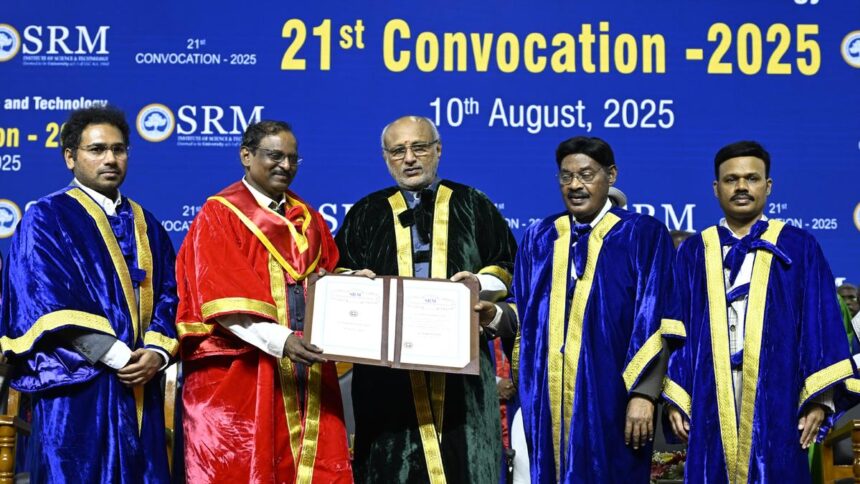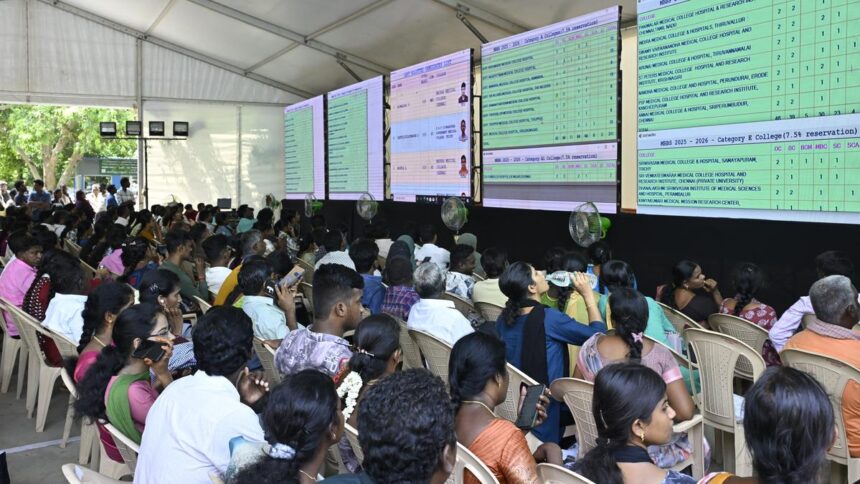With the Centre giving a big boost to the India Semiconductor Mission (ISM) by announcing four semiconductor projects, including one in Andhra Pradesh, city-based Andhra University (AU) is preparing to support ISM by providing skilled manpower through a new B.Tech VLSI (Very Large Scale Integration) design course from the academic year 2026-27.
Prof. G. Sasibhushana Rao, principal, AU College of Engineering, said that the semiconductor projects require manpower from multiple disciplines, and those doing the VLSI design course will be in high demand.
Speaking to The Hindu, Prof. Rao said: “AU has already received approval from the All India Council for Technical Education (AICTE) for B.Tech VLSI Design and from the AU Council for 60 seats. AU will be the first State university to introduce B.Tech VLSI Design. The course will commence from the next academic year.”
Prof. Rao said that ISM is the future of the country for the jobs for budding engineers. There will be a high need for freshers from colleges who have passed out from certain disciplines like VLSI, Computer Science, Electronics & Communications, Mechanical, Civil among other streams.
Elaborating, Prof. Rao, a former Vice Chancellor of AU, said that the semiconductor manufacturing industry process has four main pillars: design, fabrication, testing and result analysis. Design is the use of electronic design automation (EDA) tools to create chip layouts, logic and verification models. Fabrication is the production of a chip on silicon or compound wafers through lithography, deposition, etching and implantation. Testing is electrical, functional and reliability testing to ensure performance, and finally result analysis includes yield optimization, defect analysis and final product validation.
He said that every modern fab requires more than 5000 engineers across multiple disciplines to set up a full-fledged manufacturing unit (fab). Students from VLSI/ECE/Computer Science department are required for chip design, verification, test-programs and yield/debug analytics. Candidates from Microelectronics discipline are required for device-modelling and process integration.
However, with the four newly approved semiconductor projects by the Centre with a cumulative investment of around ₹4,600 crore, the total number approved under ISM has reached 10 so far, with investments of around ₹1.60 lakh crore across 6 states including A.P., said a source from the department of Industries at the Secretariat.
“In Andhra Pradesh, Advanced System in Package Technologies (ASIP) will set up a semiconductor manufacturing unit under a technology tie-up with APACT Co. Ltd, South Korea, with an annual capacity of 96 million units. The location is yet to be identified, but surrounding areas of Visakhapatnam is also suitable as it has vast logistic network of rail, air and ports besides academic institutions. The products manufactured in A.P. will find applications in mobile phones, set-top boxes, automobiles and other electronic products,” the Secretariat official told The Hindu.
Published – August 13, 2025 11:46 pm IST




















